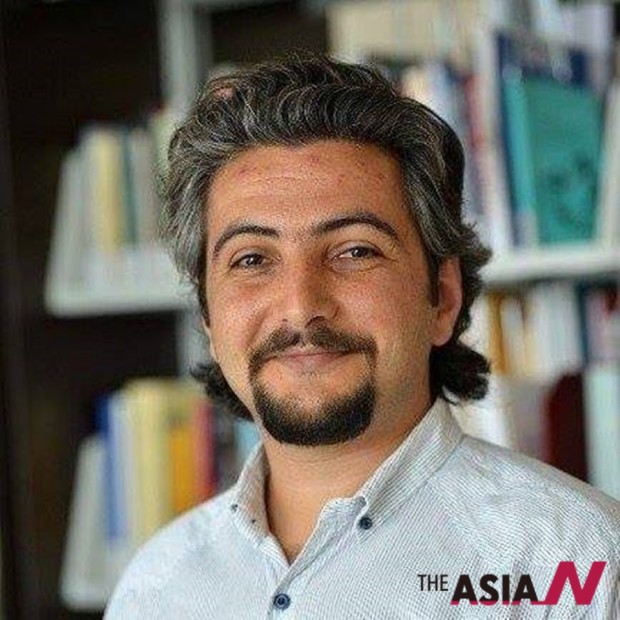Solution of the Karabakh Problem Depends on Russian Will

Mr. Orhan GAFARLI is an expert on Caucasus and Russian Affairs. He currently continues his works in Ankara University, Turkey. His articles appear on The Jamestown Foundation.
Nagorno-Karabakh is one of the most important regional conflicts in the world. The last clashes on the contact line increased the tension in Caucasus. There are countless peace meetings since the 1990s but there is no any solution. According to analysts, Azerbaijan and Armenia need the mediation initiatives of different actors. Mr. Orhan Gafarli who is an expert on the region from Ankara University in Turkey answered the questions of The AsiaN about latest developments in the region.
Mr. Gafarli, can you explain the main reasons for the last war in Nagorno-Karabakh which occurred in the first week of April?
I can count three general points. First of all, the problem remains unsolved for 23 years. Two sides don’t agree on the legal status of Nagorno-Karabakh. Baku and Yerevan don’t reach an agreement on the solution process of OSCE Minsk Group. This disagreement continues since the year of 1998.
Secondly, the available status quo in the region is a great benefit for Armenia. This situation causes the dissolve of drawn borders of Nagorno-Karabakh and seven surrounding districts. Armenian side gradually stakes out a claim on the adjacent territories of Karabakh. Their approaches are strongly disturbing Baku.
Thirdly, Azerbaijan has focused on to blockade Armenia and preferred to follow realpolitik in Southern Caucasus for a long time. This kind of policy caused Russia’s position to be stronger in the region. Baku and Moscow needed to agree on controlled conflict within sharp limits, it means that no one can act in the Southern Caucasus without the permission of Russia.
It was so clear that Russia was the main actor that created pressure over Armenia and Azerbaijan during the process of Madrid Principles. The situation in the region would have been totally different if Azerbaijan created a different policy and Turkey was successful with the “football diplomacy” or Eastern Partnership process of European Union worked. Armenia could have agreed on the peace solutions at this situation. We witnessed that Azerbaijan’s blockade tactics and realpolitik initiatives caused a war in the region.
Is there any relation between the domestic politics of regional countries and Nagorno-Karabakh problem?
Of course, domestic politics of the two countries have great impact. The sustainable crisis had been a great problem for the governments of these states. Leaders could have found a chance to save their powers if they could have created possible solutions.
What is the role of Russia in this conflict?
Russia should be accepted as a pragmatist power in the region. Its control over the region may expire in case of peace. Sergey Lavrov, the Minister of Foreign Affairs of Russia, called Azerbaijan to be part of Collective Security Treaty Organization and Eurasian Economic Union. His demand gives us a clue.
Russia consolidates its strong position with various policies toward Azerbaijan and Armenia. We can follow the news about Russia’s possible move to the region by placing military forces in Nagorno-Karabakh and its great intention to establish a military base in Shusha, at the heart of the region. These initiatives are not the expectations of peace.
Is there any necessity to change the status quo in the region? What elements can change it?
The geopolitical situation clearly shares us that the status quo can be changed if Russia agrees to give back corridor zones which are five districts controlled by Armenian forces around Nagorno-Karabakh. This process totally depends on Russian control. We can expect the membership of Azerbaijan to Russian-controlled organizations such as Collective Security Treaty Organization and Eurasian Economic Union. The only inhibitor is Armenia. Because this process can cause the loss political power of the ruling elite which consists of Karabakh clan. The first president of Armenia, Levon Ter-Petrosyan has lost the power under the accusations of treason. A similar process can appear for the current president Serzh Sargsyan.
How do you evaluate the US and European role in this process?
Actually, the presidential election process and the issue of immigrants negatively affected the roles of the US and Europe. We can say that Russia became stronger in the region during the Obama terms. But Hillary Clinton was interested in the region. The football diplomacy was formed during her period. John Kerry wants to follow the critical developments in the region but Syria and Ukraine are the main agendas of the US. I think the US and Europe don’t want to encounter problems with Russia over the Nagorno-Karabakh issue.
Mr. Gafarli, thank you very much for your answers.
I thank The AsiaN.





















































